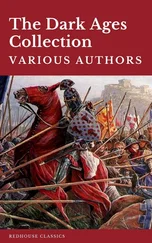The battle of the Nedao was an arbitrament far more momentous than the battle of Maurica. The catastrophe of the Hun power was indeed inevitable, for the social fabric of the Huns and all their social instincts were opposed to the concentration and organisation which could alone maintain the permanence of their empire. But it was not the less important that the catastrophe arrived at this particular moment — important both for the German peoples and for the Empire. Although their power disappeared, at one stroke, into the void from which it had so suddenly arisen, we shall see, if we reflect for a moment, that it affected profoundly the course of history. The invasion of the nomads in the fourth century had precipitated the Visigoths from Dacia into the Balkan peninsula and led to the disaster of Hadrianople, and may be said to have determined the whole chain of Visigothic history. But apart from this special consequence of the Hun invasion, the Hun empire performed a function of much greater significance in European history. It helped to retard the whole process of the German dismemberment of the Empire. It did this in two ways: in the first place, by controlling many of the East German peoples beyond the Danube, from whom the Empire had most to fear; and in the second place, by constantly supplying Roman generals with auxiliaries who proved an invaluable resource in the struggle with the German enemies. The devastations which some of the Roman provinces suffered from the Huns in the last years of Theodosius II and Valentinian III must be esteemed a loss which was more than set off by the support which Hunnic arms had for many years lent to the Empire; especially if we consider that, as subsequent events showed, the Germans would have committed the same depredations if the Huns had not been there. This retardation of the process of dismemberment, enabling the Imperial government to maintain itself, for a longer period, in those lands which were destined ultimately to become Teutonic kingdoms, was all in the interest of civilisation; for the Germans, who in almost all cases were forced to establish their footing on Imperial territory as foederati , then by degrees converted this dependent relation into independent sovranty, were more likely to gain some faint apprehension of Roman order, some slight taste for Roman civilisation, than if their careers of conquest had been less gradual and impeded.
§ 5. Deaths of Aetius (454) and Valentinian III (455)
The reward of Aetius for supporting Valentinian’s throne for nearly thirty years was that he should fall by Valentinian’s hand. One of the most prominent senators and ministers since the later years of Honorius was Petronius Maximus. 77He had been twice Prefect of Rome, twice Praetorian Prefect of Italy; he had twice held the consulship; and in A.D. 445 we find him a Patrician. He had a distinguished pedigree, though we do not know it; perhaps he was connected with the great Anician gens. But he probably owed his prestige and influence more to his immense wealth than to his family or to his official career. He was a notable figure at Rome, “with his conspicuous way of life, his banquets, his lavish expense, his retinues, his literary pursuits, his estates, his extensive patronage,” 78In A.D. 454 he was approaching his sixtieth year. He bore personal enmity against Aetius and determined to oust him from power.
He discovered that the sentiments of Heraclius, a eunuch who had the Emperor’s ear, were similar to his own. The two conspired together, and persuaded Valentinian that he would perish at the hands of Aetius unless he hastened to slay him first. 79
Valentinian listened to this counsel and devised death against his powerful general. One day, when Aetius was in the Palace, laying some financial statement before the Emperor, Valentinian suddenly leaping from his throne accused him of treason, and not allowing him time to defend himself, drew his sword and rushed upon the defenceless minister, who was at the same moment attacked by the chamberlain Heraclius. Thus perished the Patrician Aetius (September 21, A.D. 454). A poet wrote his epitaph: 80
Aetium Placidus mactavit semivir amens;
and it is said that some one afterwards boldly told the truth to Valentinian, “You have cut off your right hand with your left.” Who was now to save Italy from the Vandals?
Petronius Maximus assuredly was not the man for the task. It was his ambition to be “the Patrician” of the Emperor, but he reckoned without Heraclius. The eunuch persuaded Valentinian that, being well rid of the oppressive influence of Aetius, he would act foolishly if he transferred the power to Maximus. Bitterly disappointed, Maximus wove another murderous plot. He sought out two barbarians, Optila and Thraustila, who had been personal retainers of Aetius, had fought in his campaigns, and enjoyed the favour of the Emperor. 81He urged these men to avenge their master, and the issue may be told in a chronicler’s words:
“It seemed good to Valentinian to ride in the Campus Martius with a few guards accompanied by Optila and Thraustila and their attendants. And when he dismounted and proceeded to practise archery, Optila and those with him attacked him. 82Optila struck Valentinian on the temple, and when the prince turned to see who struck him dealt him a second blow on the face and felled him. Thraustila slew Heraclius. And the two assassins taking the Imperial diadem and the horse hastened to Maximus. They escaped all punishment for their deed.” 83The day of the murder was March 16, A.D. 455.
These two bloody deeds mark the beginning of a new disastrous period in the history of the western provinces. The strong man who might have averted the imminent danger from the Vandals, and the weak man whose mere existence held Italy, Gaul, and Spain together, were removed; there was no general to take the place of Aetius, “the last of the Romans,” 84as there was no male member of the Theodosian house to succeed Valentinian. A chronicler speaks 85of the Patrician Aetius as “the great safety of the western republic” ( magna occidentalis reipublicae salus ), the terror of king Attila; “and with him the Hesperian realm fell, and up to the present day has not been able to raise its head.” We can comprehend this judgment; the death of Aetius was a grave event. He was the greatest of the three Romans who had been responsible for the defence of Italy and the western provinces since the fall of Stilicho, and he was to have no Roman successor. Two years after his death the supreme command of the Imperial forces would again pass into the hands of a Romanised German. But we must not leave out of sight the importance of the death of his master Valentinian without male offspring. A legitimate heir of the Theodosian house would have prevented some of the troubles which befell Italy in the following years.
§ 6. Christian and Pagan Speculations on the Calamities of the Empire
An amazing sequence of events had surprised the Empire after the death of Theodosius the Great. Provinces had been seized by barbarous invaders, and the very soil of Italy desecrated by German violence. The sight of Rome herself stricken and insulted, no longer able to speak the language of a mistress but compelled to bargain with the intruders on her own territory, could not fail to make men ask, “What is the cause of these disasters? Civil wars there have been in the past, our frontiers have been crossed, our provinces invaded, but since the Gauls bore down on Rome nearly eight hundred years ago, the queen of the world has never been violated and plundered by a foreign enemy till now, and it hardly entered any man’s dream that such a horror might some day come to pass.” In that age there was probably no one who held the view that political and social changes depend on the series of antecedent events and that sudden catastrophes are no exception. It was in the will of heaven, the anger of divine tyrants, or the inscrutable operations of the stars, that men were prone to seek explanations of shocking or unexpected public calamities.
Читать дальше












